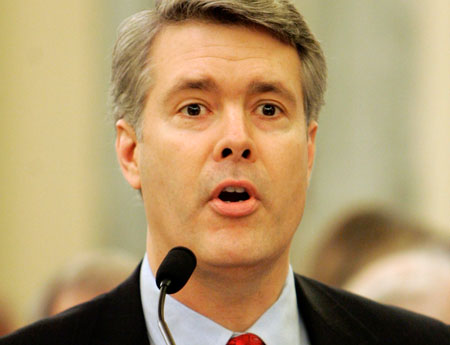Broadcasters Seek New Auction Schedule

The smarter way to stay on top of broadcasting and cable industry. Sign up below
You are now subscribed
Your newsletter sign-up was successful
The FCC's Advanced Wireless Services (AWS-3) auction—which could be concluded by the time you read this—is already a rousing success. How that ultimately affects commission policy on the third and most important among this set of auctions is anyone’s guess, but broadcasters hope AWS-3 will end up being this holiday season’s gift that keeps on giving.
One of three money-raising auctions that is to culminate in the broadcast incentive auction, the 65 MHz of wireless spectrum in the AWS-3 pot has already tripled some pre-auction estimates ($44.2 billion at presstime) and essentially covered the programs—emergency networks, e-911, R&D—that would have fallen to the broadcaster auction to fund.
With that pressure off, the National Association of Broadcasters argues, the FCC can focus on improving the auction framework—NAB has issues with recently-released auction details—and not be in such a rush to put the spectrum on the block or squeeze every last bit of territory out of broadcasters to insure enough spectrum is sold to pay for all the things the AWS-3 auction has, in essence, already paid for.
“The FCC has the responsibility to take a step back and assess what the world looks like now that the AWS-3 auction has raised so much money,” said Rick Kaplan, NAB’s point man on the auctions. “It’s probably time to stop conducting the incentive auction like it is going to be a failure” or to adopt a variable band plan “because of an irrational fear of not raising enough money.”
Kaplan added that the FCC should rethink its approach to unlicensed spectrum now that everything is “paid for in spades,” making a little more room for them rather than trying to “shoehorn” them in. He also said it should mean the FCC does not have to hold the auction in early 2016. “Most people would say that if you want to raise as much money as possible, you would not want to have the next auction only a year later.”
Former FCC commissioner Robert McDowell, a member of the FCC when wireless companies asked the FCC to delay a previous auction, agrees. “If we are looking at a 600 MHz auction that is 18 months away or less, a big question is whether these companies can turn right around and shell out more cash in that auction.”
Not all broadcasters see the auction as a sign to take it slower. In an ex parte meeting with FCC commissioners and staff, the Expanding Opportunities for Broadcasters Coalition, which represents over 80 stations eyeing the auction, said the AWS-3 success showed how valuable the wireless spectrum was. Coalition executive director Preston Padden believes the commission should adjust the framework to make sure it does not limit the amount of spectrum it gets from broadcasters, but not put on the brakes.
The smarter way to stay on top of broadcasting and cable industry. Sign up below
“The $40 [billion]-plus AWS haul for less desirable spectrum implies broadcast auction revenues of $70 billion-$80 billion and shows that the FCC can afford to pay broadcasters real market-based prices as they have promised—not prices “managed” to limit payments to broadcasters—and still have plenty of money for the FCC’s other policy goals,” Padden told B&C. “There is no reason to delay. The demand is there and the financial markets are drooling to fund it.”
The FCC last week voted on its latest set of auction framework proposals, saying it was looking for input. Here’s one thing for certain—they’ll get it.
FCC TRIES TO TUNE OUT DUOPS
The FCC is apparently presuming that duopolies are not in the public interest, or at least that avoiding creating new ones is. That is according to language in the Media Bureau decision approving the Media General/LIN merger, which included a complicated series of spin-offs to comply with FCC rules that prevent duopolies in smaller markets.
In approving the deal, the bureau says it will result in “a number of noteworthy public interest benefits” among which is that “the divestiture applications will not result in the formation of any new duopolies.”
One veteran broadcast lobbyist suggested it is that kind of language that has broadcasters worried about their fate at the hands of the FCC, including in the incentive auction.
The FCC had no official response. A source on background said that the FCC was simply applying its multiple ownership rules to the duopolies that would have been disallowed under the deal.
Contributing editor John Eggerton has been an editor and/or writer on media regulation, legislation and policy for over four decades, including covering the FCC, FTC, Congress, the major media trade associations, and the federal courts. In addition to Multichannel News and Broadcasting + Cable, his work has appeared in Radio World, TV Technology, TV Fax, This Week in Consumer Electronics, Variety and the Encyclopedia Britannica.

